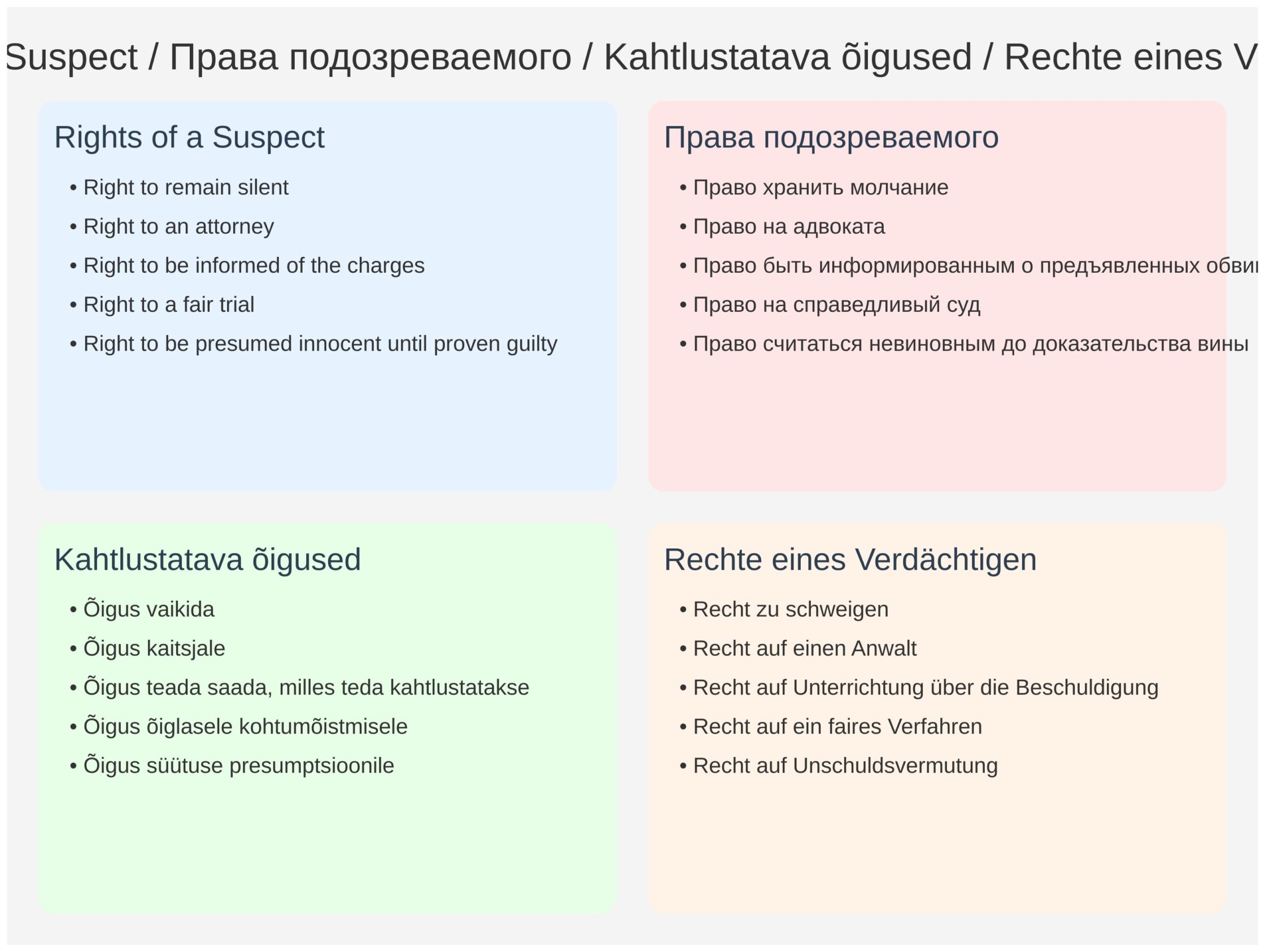In Estonia, when an individual is detained as a suspect in a criminal case, they are granted specific rights and obligations under the law. Understanding these rights and responsibilities is crucial to ensure a fair legal process and to prevent violations of personal freedoms. Below is an overview of the key rights and obligations that a suspect has during detention in Estonia.
Rights of a Suspect
- Right to Be Informed of the Reason for Detention
Upon detention, the suspect must be immediately informed of the reasons for their arrest. Law enforcement officers are required to provide clear details of the crime the suspect is being accused of, along with the basis for the suspicion.
- Right to Remain Silent
Under Estonian law, a suspect has the right to remain silent and is not obligated to incriminate themselves. This right ensures that the suspect is not forced into making statements that could be used against them in court. However, anything the suspect voluntarily says can be used as evidence in the investigation.
- Right to Legal Counsel
Every suspect has the right to consult with an attorney from the moment of detention. If the suspect cannot afford a lawyer, the state will provide one free of charge. Legal representation is a fundamental right that ensures the suspect can navigate the legal process and protect their interests.
- Right to Medical Assistance
If a suspect requires medical care during detention, they have the right to request and receive medical attention. This includes both physical and mental health needs, ensuring their well-being while in custody.
- Right to Contact Family or Employer
The detained individual has the right to inform their family, employer, or other close persons about their detention. This contact is essential to ensure that the suspect’s personal affairs are managed during their absence.
- Right to Challenge the Detention
A suspect has the right to challenge their detention in court. They can file a complaint if they believe the detention is unlawful or if their rights have been violated during the arrest or while in custody.
- Right to Interpretation Services
If the suspect does not speak Estonian, they have the right to interpretation services. This ensures they can understand the proceedings and communicate effectively with law enforcement and legal representatives.
Obligations of a Suspect
- Obligation to Provide Identification
While a suspect has the right to remain silent, they are obligated to provide identification to law enforcement. Refusing to identify oneself or providing false information can lead to additional legal consequences.
- Obligation to Comply with Lawful Orders
A suspect is required to comply with the lawful orders of law enforcement officers during detention. This includes following procedures such as fingerprinting, searches, and questioning. Non-compliance with legal orders can result in further charges.
- Obligation to Appear in Court
If a suspect is released from custody but is required to appear in court, they must comply with all summonses. Failure to appear in court can lead to further legal action, including additional charges or arrest.
- Obligation to Refrain from Destroying Evidence
Suspects must not attempt to destroy or tamper with evidence related to their case. Any actions taken to interfere with the investigation can lead to more severe charges and hinder their legal defense.
- Obligation to Respect the Rights of Others
While detained, a suspect must respect the rights of others, including fellow detainees, law enforcement officers, and other personnel. Acts of violence, threats, or misconduct during detention can result in further legal repercussions.
Conclusion
The rights and obligations of a suspect during detention in Estonia are designed to strike a balance between protecting individual freedoms and ensuring the integrity of the criminal justice process. By understanding their rights, suspects can safeguard themselves against unfair treatment, while fulfilling their legal obligations can help facilitate a smoother legal process. It is always advisable for suspects to seek legal counsel to navigate these complex situations effectively.
Attorney
Sworn attorney Ilya Zuev
Advantages:
Specialisation of conducting criminal cases.
Analysis and decision-making on the choice of the line of defence.
Experience as a lawyer since 2011.







